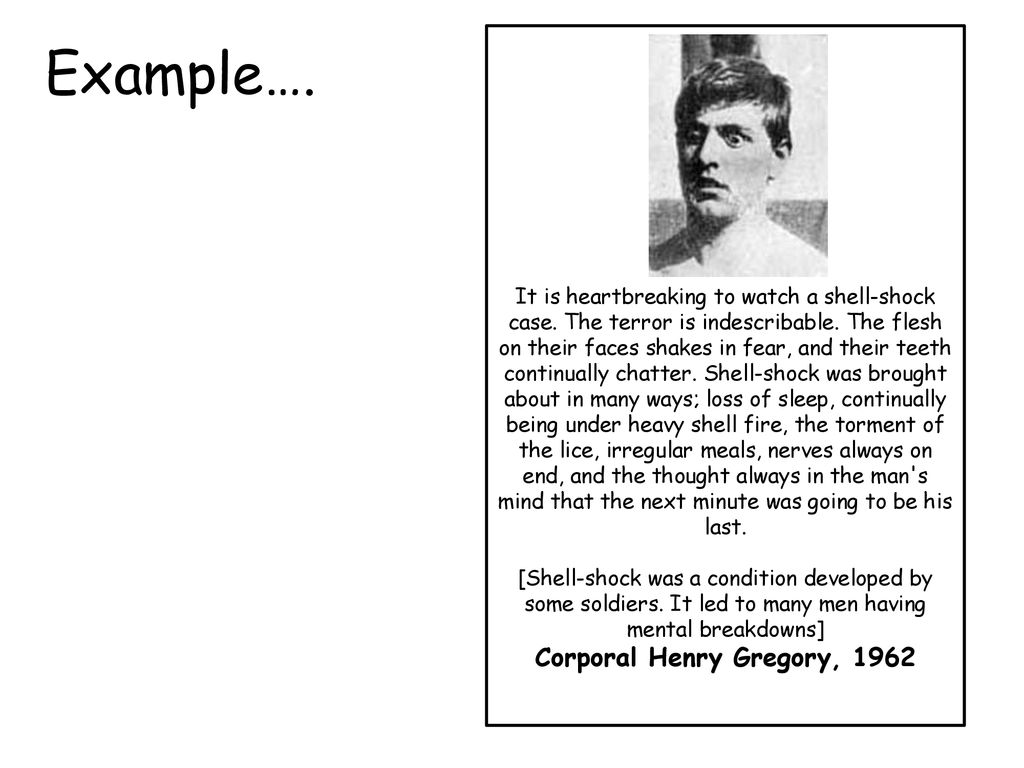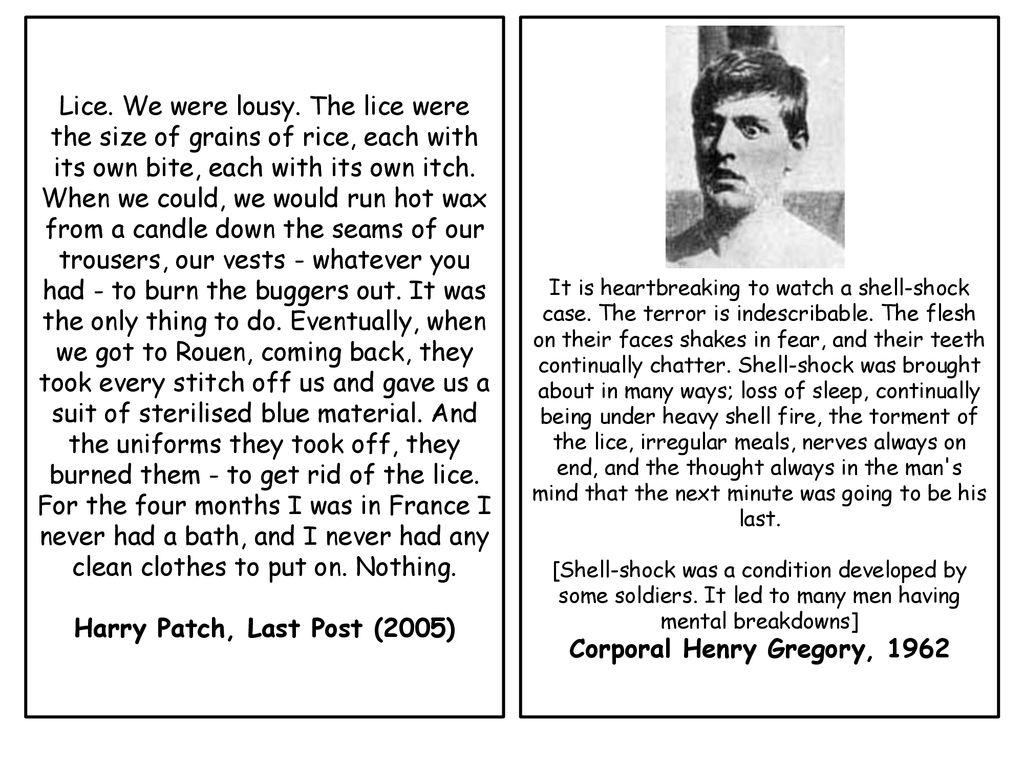The Enduring Legacy of Corporal Henry Gregory and Shell Shock
The First World War, a conflict marked by unprecedented technological advancements and brutal trench warfare, irrevocably altered the human psyche. Among the myriad of physical and psychological wounds inflicted upon soldiers was “shell shock,” a term coined to describe the debilitating mental and emotional breakdowns experienced by those exposed to the horrors of modern combat. While the term itself is now considered outdated and stigmatizing, it serves as a poignant reminder of the profound psychological impact of war on individuals. This article will delve into the life and experiences of Corporal Henry Gregory, a British soldier whose struggles with shell shock provide a poignant window into the human cost of this devastating conflict.

The Western Front, a seemingly endless expanse of mud, blood, and barbed wire, became the epitome of industrialized warfare. Soldiers endured unimaginable hardships: constant bombardment by artillery, the ever-present threat of death, the suffocating atmosphere of the trenches, and the constant fear and anxiety that permeated their daily lives. These experiences, coupled with the psychological strain of witnessing the maiming and death of comrades, pushed many soldiers to their breaking point.
Initially, the medical establishment struggled to comprehend the nature of these psychological breakdowns. Many attributed them to cowardice or moral weakness, dismissing them as fabricated illnesses to avoid duty. However, as the number of cases grew, it became increasingly evident that these were genuine psychological injuries. The term “shell shock” emerged, reflecting the perceived link between the intense auditory and physical trauma of artillery bombardment and the resulting mental and emotional distress.

Corporal Henry Gregory, a British soldier serving in the trenches, provides a poignant example of the devastating impact of shell shock. His firsthand accounts offer a chilling glimpse into the realities of life on the front line and the profound psychological scars that he carried with him long after the war.
Pre-War Life: [Insert details about Henry Gregory’s life before the war: his background, occupation, family, etc., if available. This information will help to provide context for his experiences and highlight the contrast between his pre-war life and the realities of war.]
Life in the Trenches: [Provide a vivid description of the conditions in the trenches: the constant bombardment, the stench of death, the ever-present fear, the lack of sleep, and the psychological strain of witnessing the suffering and death of comrades. Utilize quotes from Henry Gregory’s own accounts, if available, to enhance the narrative.]
Medical Treatment: [Describe the medical treatment he received. Was he hospitalized? What types of therapies were employed? Were these treatments effective? Discuss the prevailing attitudes towards shell shock at the time and the limitations of available treatments.]
Impact on Society: [Discuss the broader societal impact of shell shock. How did it challenge prevailing notions of masculinity and mental health? How did it impact public perceptions of war and its consequences?]
The experiences of Corporal Henry Gregory and countless other soldiers who suffered from shell shock serve as a poignant reminder of the devastating human cost of war. While the term “shell shock” may have fallen out of favor, the psychological wounds inflicted by conflict continue to afflict soldiers and veterans to this day. By understanding the past, we can better address the mental health needs of those who have served their country and work towards a future where the psychological scars of war are more effectively treated and prevented.



